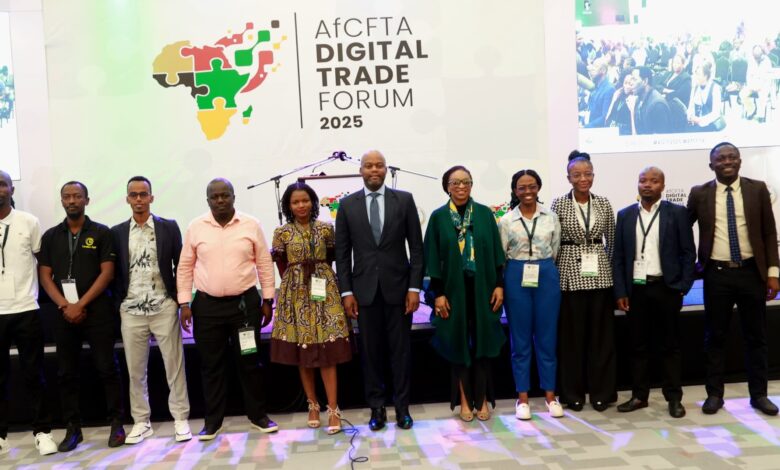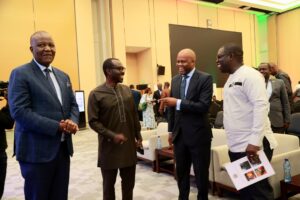AfCFTA Forum Sets Momentum for Unified African Digital Market

The stage has been set for Africa’s transition into a unified digital economy following the successful conclusion of the inaugural African Continental Free Trade Area (AfCFTA) Digital Trade and Services Forum in Lusaka. The event marks a significant stride in the continent’s ambition to integrate digital trade into the broader AfCFTA implementation process.

Under the theme “Boosting Digital Trade to Accelerate AfCFTA Implementation,” the three-day gathering brought together Heads of State, policymakers, private sector players, innovators, and development partners to shape a roadmap toward seamless cross-border digital transactions. At the heart of discussions was the operationalisation of the AfCFTA Protocol on Digital Trade, hailed as one of the most forward-looking instruments ever adopted under the trade pact.
President Hakainde Hichilema of Zambia, who hosted the forum, urged fellow African leaders to prioritise investment in digital infrastructure, harmonise regulatory frameworks, and promote inclusive participation in digital markets. His call was echoed by President Duma Boko of Botswana and AfCFTA Secretary-General Wamkele Mene, who stressed the urgency of collaboration in positioning Africa as a global digital competitor.

Beyond high-level dialogue, the forum delivered concrete initiatives. A notable highlight was the launch of the AfCFTA Digital Skills and Entrepreneurship Programme, developed in partnership with Google’s Hustle Academy. The programme is designed to close Africa’s digital skills gap, particularly among youth and women-led enterprises, and support a new wave of digital entrepreneurs.
One of the critical enablers of Africa’s digital future is the Pan-African Payment and Settlement System (PAPSS), which was launched by the African Union and Afreximbank in 2022.

PAPSS has already begun to facilitate real-time cross-border transactions in local currencies, significantly reducing the cost and complexity of intra-African trade. Its integration into the digital trade framework is seen as vital for enabling swift payments across borders, eliminating reliance on hard currencies, and enhancing financial inclusion for businesses of all sizes.
Participants at the forum explored digital trade enablers through ten plenaries and thematic sessions covering cross-border payments, data governance, artificial intelligence, digital platform monetisation, and the challenges facing micro, small and medium-sized enterprises (MSMEs). A consistent theme was the need to support African-owned platforms, ensure data sovereignty, and promote policies that balance innovation with user protection.

The event also celebrated African innovation with the recognition of top finalists in the AfCFTA Digital Innovation Challenge—underscoring the role of homegrown solutions in unlocking economic opportunity and digital empowerment.
The Forum concluded with a Call to Action dubbed “The Road to Success: Charting the Course for Digital Trade under the AfCFTA.” It lays out a comprehensive vision that includes scaling infrastructure, harmonising digital regulations, enhancing cybersecurity, and aligning investment to support inclusive digital growth.
With momentum now shifting from strategy to execution, the Lusaka forum has reinforced the political will and technical consensus needed to make a single African digital market a reality. The continent’s message is unmistakable: digital trade is not only the future—it is the key to Africa’s present-day economic transformation.




